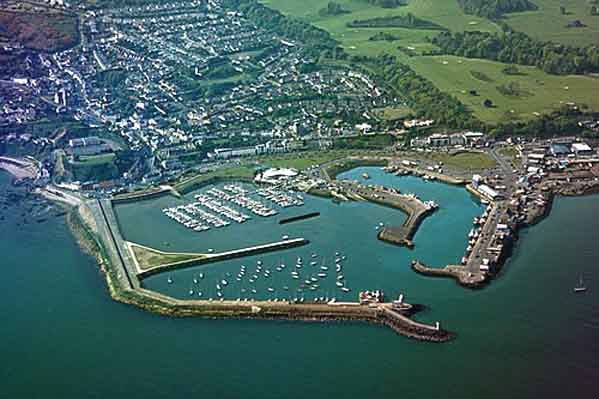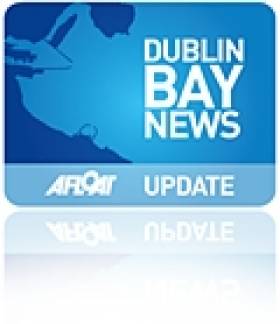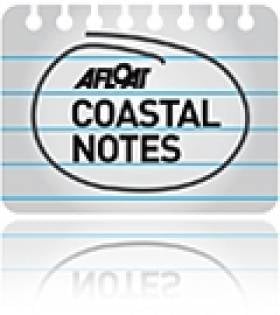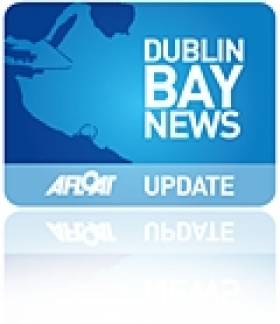Displaying items by tag: Howth Harbour
Harbour2Harbour Dublin Bay Walk Coming Soon
#DUBLIN BAY NEWS - The annual St Patrick's Day Harbour2Harbour Walk in aid of mental health charity Aware is just a few weeks away.
The 16.2 mile walk around Dublin Bay begins at 10.30am on Saturday 17 March, taking around five hours to complete, and it's your choice whether you begin at Howth Harbour and walk to Dun Laoghaire Harbour or vice versa.
Organisers describe the event as "a great day out for family, friends and individuals, all of whom get a great sense of achievement and a great view of Dublin Bay."
Of course the main aim of the day is to raise funds for Aware, and once registered to take part you will receive a fundraising pack containing letters, information, maps and sponsorship cards. You can also set up your own fundraising page on MyCharity.ie.
The registration fee is €15 per individual or €25 for a group of 2 (children under 16 are free). Advance online registration is now available at the Aware website HERE. Late registration will be available on the morning of the walk itself.
Volunteers are also required to help with late registration on the morning of the walk and act as stewards at various points along the route. If you can help please call 01 661 7211 or e-mail [email protected].
More information about the day can be found at Aware's Harbour2Harbour webpage HERE.
Dublin Bay Prawn Festival Heads for Howth
A Sampi trail will be held in various pubs and hotels on the Friday night starting at 7pm, no booking is required. On the Saturday afternoon there is a Prawn Shelling Competition starting at 2.30pm.
Howth Yacht Club will open its doors to public viewing on the Saturday and the Howth Coastguard Station (West Pier) will also be open on that day too in addition to the Sunday. The West Pier is also to host a Fishing Techniques demonstration on Sunday at 3pm.
On the mornings of Saturday and Sunday a self-guided walk from Howth to up to Howth Hill taking up to two hours will meet at The Courthouse at 10am. The walk which is to be pre-booked and registered online is also suitable for families. The route is weather dependant and will follow one of the four looped walks.
The Irish Seal Sactuary will be offering a seal watching tour and harbour walks guided by volunteers on the Saturday and Sunday. An information stand will be made available for more details click www.irishsealsanctuary.ie
Throughout the weekend there will be all day events which include island boat / eco tour trips and the National Transport Musuem, noting that these activities will be charged. It should be noted that festival programme is provisional and is subject to change.
For more information about the full festival programme logon HERE and by contacting Howth Tourist Office on 01 8396955 and by email: [email protected]
Aware's Harbour 2 Harbour Walk Around Dublin Bay
Alternatively walkers are welcomed to take the walk in the reverse direction starting at Howth and terminating at Dun Laoghaire. The walk takes approximately 4-hours to complete. The 16.4 mile route that skirts the shores of Dublin Bay will offer great views!
The walk last year was taken by families, friends and individuals and provided participants with a great sense of achievement!
For this year's event, walkers are invited to take part by booking places in advance online. Entries (€10 per person) close at midnight on Sunday 13 March, click HERE. Late registration will also be available on the morning of the walk (€15 per person) or email [email protected]
To read more about Aware click http://www.aware.ie (noting the locall Aware Helpline Tel: 1890 303 302 / calling from overseas +353 1 6766 166) and further information about the Helpline click HERE
New series of 'Customs' on RTÉ One
To be broadcast in six-parts, the series will provide unprecedented access into the daily operations of the custom officers.'Customs' examines how the country is dealing with increasing levels of illegally imported materials and substances.
Custom officers found shipments of drugs in the strangest places: a doll's house,picture frames, the bottom of a massive cargo ship. In addition the seizure of contraband cigarettes, vehicles, large quantities of money and the more bizarre discovery of a Colombian snake.
Howth Harbour
Howth Harbour

A picturesque fishing village nestled on the rugged peninsula that forms the north side of Dublin Bay, Howth is one of Ireland’s many hidden treasures. That is not to say that the village doesn’t receive its fair share of visitors. Far from it. Howth is a favourite holiday destination and benefits especially from its popularity amongst yachtsmen and pleasure boaters. Indeed Howth Yacht Club dates back to 1895 and with around 2,000 members it is by far the largest in the country and enjoys a busy programme of racing, regattas and voyaging. The marina and club complex combine state of the art with old and traditional with standards of services superb across the board. As you would expect from such a large club, berths are plentiful and marine services top notch.
Away from the harbour itself there is much to recommend Howth. Historians will love the ruined abbey, nearby Baily Lighthouse and 15th century castle. You can take a bracing stroll along the piers, sight-see aboard an open top tram, watch seals and dolphins in the waters along the shore and take in breathtaking views from cliff top walks. Of course, Howth’s working fishing port means that fish and seafood lovers are absolutely spoilt when it comes to dining out and the pub scene is second only to Dublin itself, if a little more relaxing.
Howth is a lovely place from which to discover Ireland. You can blow away the cobwebs and kick back and explore the magnificent coastline at your leisure knowing you will be returning after each trip to one of the friendliest places on earth. And that’s the truth.
Marine Services in Howth – click here
Pilot Notes for Howth – click here
Marinas in Howth – click here
Accommodation in Howth – click here
Emergency
Fire/Ambulance/Police: 999/112
Customs: 874 6571
Harbour Master: 83 222 52
Lifeboat: 8323 524
Beaumont Hospital: 83 777 55
Tourist Information – Fingal Tourist Information Office +353 1839 6955
Air Travel
Aer Lingus: 705 3333
British Midland: 283 8833
RyanAir Flight Information: 1550 200200
CityJet: 844 5566
Car Ferries
Stena Line: 204 7777
Irish Ferries: 66 10 511
Rail Transport – Iarnrod Eireann (Irish Rail): 83 66 222
Howth Harbour Harbour Master's Office – Captain Raja Maitra, tel +353 (0) 1 83 222 52 or mobile 086 3814926. fax +353 (0) 1 832 6948 (Office situated Northern End of Auction Hall)



























































